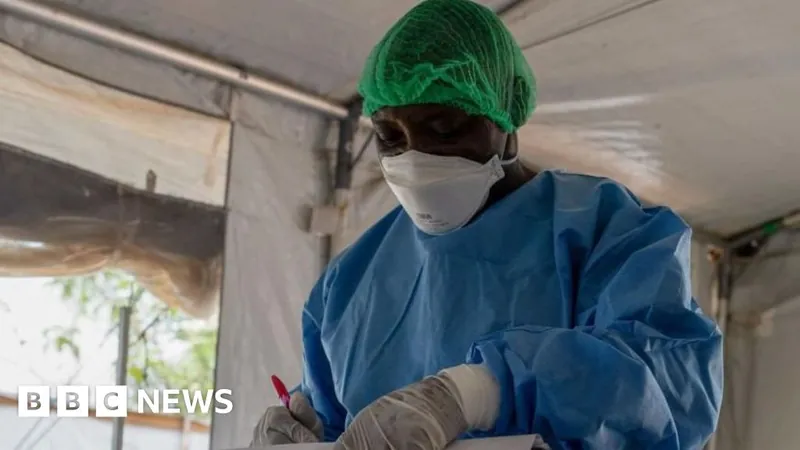
Hong Kong’s Infectious Diseases Research Funding Skyrockets to $4.2 Billion – What This Means for Public Health!
2024-12-20
Author: Wei
Significant Increase in Funding
In a significant boost to its commitment towards combating infectious diseases, the Hong Kong government announced a monumental increase in funding, elevating support for health and medical research to an astounding $4.2 billion. This substantial investment is poised to fortify the local health sector’s ability to tackle pressing health challenges, particularly in light of recent global public health crises.
Historical Context and Development
The Health Bureau reaffirmed its ongoing dedication to enhancing health and medical research capabilities, specifically through initiatives that have been in place since the 2003 SARS outbreak. Following that health crisis, the government established the Research Fund for the Control of Infectious Diseases (RFCID), initially committing $450 million to facilitate research on infectious diseases. This funding has proven pivotal in supporting various projects focused on emerging health threats, including H5N1 avian influenza.
Focus on Current Health Crises
In 2011, the Health and Medical Research Fund (HMRF) was formed by consolidating previous funding initiatives and has since seen considerable growth. As of the latest report, more than $1.2 billion of the overall $4.2 billion is earmarked specifically for research on diseases such as COVID-19, Middle East Respiratory Syndrome (MERS), and antibiotic resistance, signifying the government’s strategic focus on infectious diseases within its health agenda.
Investment in COVID-19 Research
Since the onset of the COVID-19 pandemic, the government has allocated approximately $556 million towards over 100 research projects directly related to the virus, fostering innovations in early detection, treatment, and vaccine development. Notably, one such project developed a groundbreaking sewage testing method for tracking COVID-19 activity in communities, demonstrating the government's proactive approach in utilizing technology for public health monitoring.
Support for Investigator-Initiated Research
In addition to government-commissioned initiatives, substantial financial support is available for investigator-initiated research projects that reflect thematic priorities aligned with current health challenges. As of late September 2024, nearly 400 research studies have received funding totaling $424 million, focusing on vital areas such as hepatitis, tuberculosis, and overall pandemic readiness.
Looking Ahead
The government is not only investing in immediate research needs but also encouraging researchers to capitalize on the HMRF for transformational outcomes that can significantly impact health policy and practice. This sustained investment is expected to enhance Hong Kong's capacity for surveillance, early detection, and control of infectious diseases, ultimately leading to improved public health outcomes.
Conclusion
Stay tuned as we continue to monitor the developments in infectious disease research and its implications for Hong Kong's health landscape. What new discoveries await? Only time will tell, but one thing is clear: Hong Kong is gearing up for a healthier future with its unwavering commitment to medical research!




 Brasil (PT)
Brasil (PT)
 Canada (EN)
Canada (EN)
 Chile (ES)
Chile (ES)
 España (ES)
España (ES)
 France (FR)
France (FR)
 Hong Kong (EN)
Hong Kong (EN)
 Italia (IT)
Italia (IT)
 日本 (JA)
日本 (JA)
 Magyarország (HU)
Magyarország (HU)
 Norge (NO)
Norge (NO)
 Polska (PL)
Polska (PL)
 Schweiz (DE)
Schweiz (DE)
 Singapore (EN)
Singapore (EN)
 Sverige (SV)
Sverige (SV)
 Suomi (FI)
Suomi (FI)
 Türkiye (TR)
Türkiye (TR)